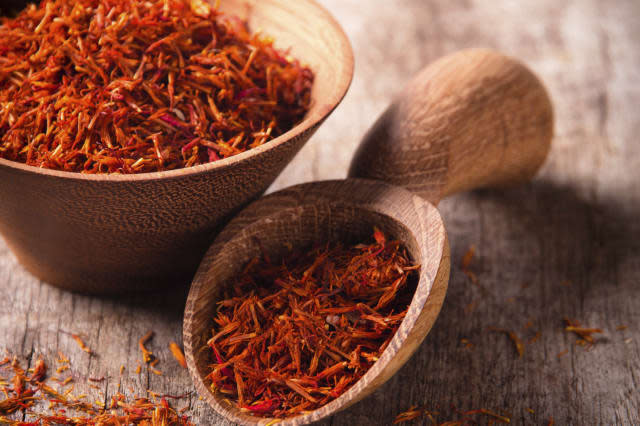Misleading labels: do you know what's really in your food?

Food manufacturers are still routinely duping consumers with product labels, academics have claimed.
Richard Evershed and Nicola Temple of the University of Bristol say that the problem ranges from misleading labels to out-and-out food fraud - where one product is passed off as another.
Examples of the former include 'traditional' or 'classic' hummus made with rapeseed oil rather than olive oil, 'duck' pate that consists mostly of pork fat, and frozen fish that is bulked out with water.
It's perfectly legal to describe products this way, as long as the true ingredients are listed somewhere on the pack - which they are, albeit in very small print.
However, true food fraud is still going on. Saffron, for example, is often faked with coloured strands of beets, grass, silk and even meat. Manuka honey and pomegranate juice are also often faked.
And there's big money in food fraud, with Salvarani Elahi, the deputy government chemist, recently warning that criminals can now make more money selling fraudulent food than illegal drugs.
However, it's extremely difficult to catch the fraudsters, given the size of the food market as a whole. Testing every product on the market could be an impossible task.
Will Cresswell, head of consumer products at the Food Standards Agency (FSA), recently told a food safety conference that whistleblowers were still the main way that food fraud was uncovered.
The FSA says there were 58 declared incidents of food fraud or adulteration last year, down from 69 in 2014. However, it believes that as much as 10% of the food on our supermarket shelves is adulterated.
Earlier this year, Interpol seized more than 10,000 tonnes and one million litres of fake food and drink, including sugar contaminated with fertilizer in Khartoum and olives painted with copper sulphate solutions to enhance their colour.
In the UK, they recovered nearly 10,000 litres of fake or adulterated alcohol including wine, whisky and vodka.
"Today's rising food prices and the global nature of the food chain offer the opportunity for criminals to sell counterfeit and substandard food in a multi-billion criminal industry which can pose serious potential health risks to unsuspecting customers," says Chris Vansteenkiste, cluster manager of the intellectual property crime team at Europol.





